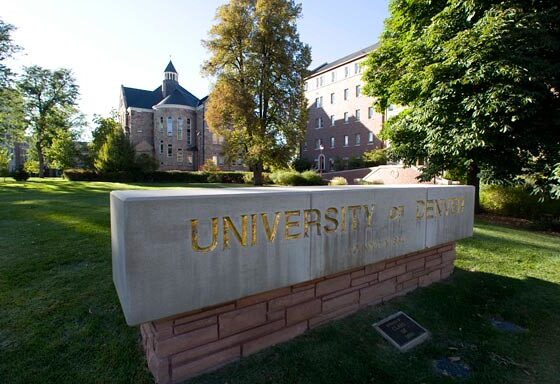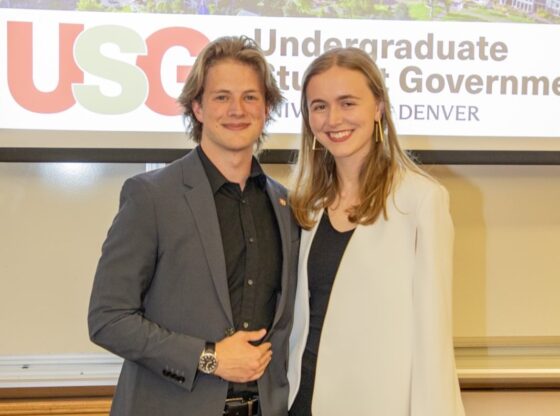Award-winning journalist Chris Farrell spoke to students about financial literacy during a presentation in Sturm Hall’s Davis Auditorium last Tuesday at 4 p.m. This was the first in a series of events sponsored by the Office of Financial Aid to help increase student financial knowledge.
Chris Farrell is the Senior Economics Contributor for a nationally broadcast public radio personal finance program called Marketplace, an economics correspondent, a columnist for several publications and a frequent speaker at conferences and universities.
About 80 students and faculty attended the presentation, and ten student attendees were selected at random to receive a $250 book scholarship for attending.
Farrell focused on finance as a tool to help students live a “good life,” covering topics including personal finance, borrowing, private versus federal student loans, budgeting and saving money, grad school, strategies for paying off debt and saving for retirement.
Farrell said borrowing wisely is very important for student success. He said students should avoid taking out private student loans and opt instead for federal student loans, explaining that federal student loans give students several different options for paying back the money.
“When you take out private loans, it’s just an ordinary loan,” said Farrell. “There’s no flexibility.”
Farrell said that personal finance is about trade-offs, meaning that if someone chooses to do one thing with their time and money – such as go to college – that means they can’t do something else with it, such as support themselves while earning an income. Farrell said that being aware of those tradeoffs is important, because people need to choose the side that will lead to the life they want to live.
Another topic covered in the presentation was the job market and how students can go about getting a job after they graduate. Farrell cited word of mouth as the best way to find a job as opposed to the Internet, which is so commonly used for job searches that the likelihood of finding employment is very slim.
The first step in finding a job according to Farrell, however, is getting a college education.
“A college degree remains the best investment that most people can make,” said Farrell. “Jobs are being created, but they’re being created for people with degrees.”
Farrell also recommended that students start saving sooner rather than later for retirement, and suggested putting a certain percentage of a yearly income toward retirement savings. While a dependable pension after retirement has been a staple in the past, Farrell said students should not rely on having this in the future.
“Start the retirement savings when you’re young. The one thing you can’t get back is time,” said Farrell.
Farrell presented the question “What is it that I really want to be doing?” as a guiding principle to be used in financial decision making. Along the same lines, he suggested creating a margin of safety with savings to allow for flexibility in decision-making. In other words, he recommended leaving enough money in savings at all times to allow flexibility to make decisions such as leaving a job or moving to a different location.
“It’s not about stocks and bonds, it’s about creating a good life,” said Farrell. “If you’re doing something you love, that’s a good return on investment.”











